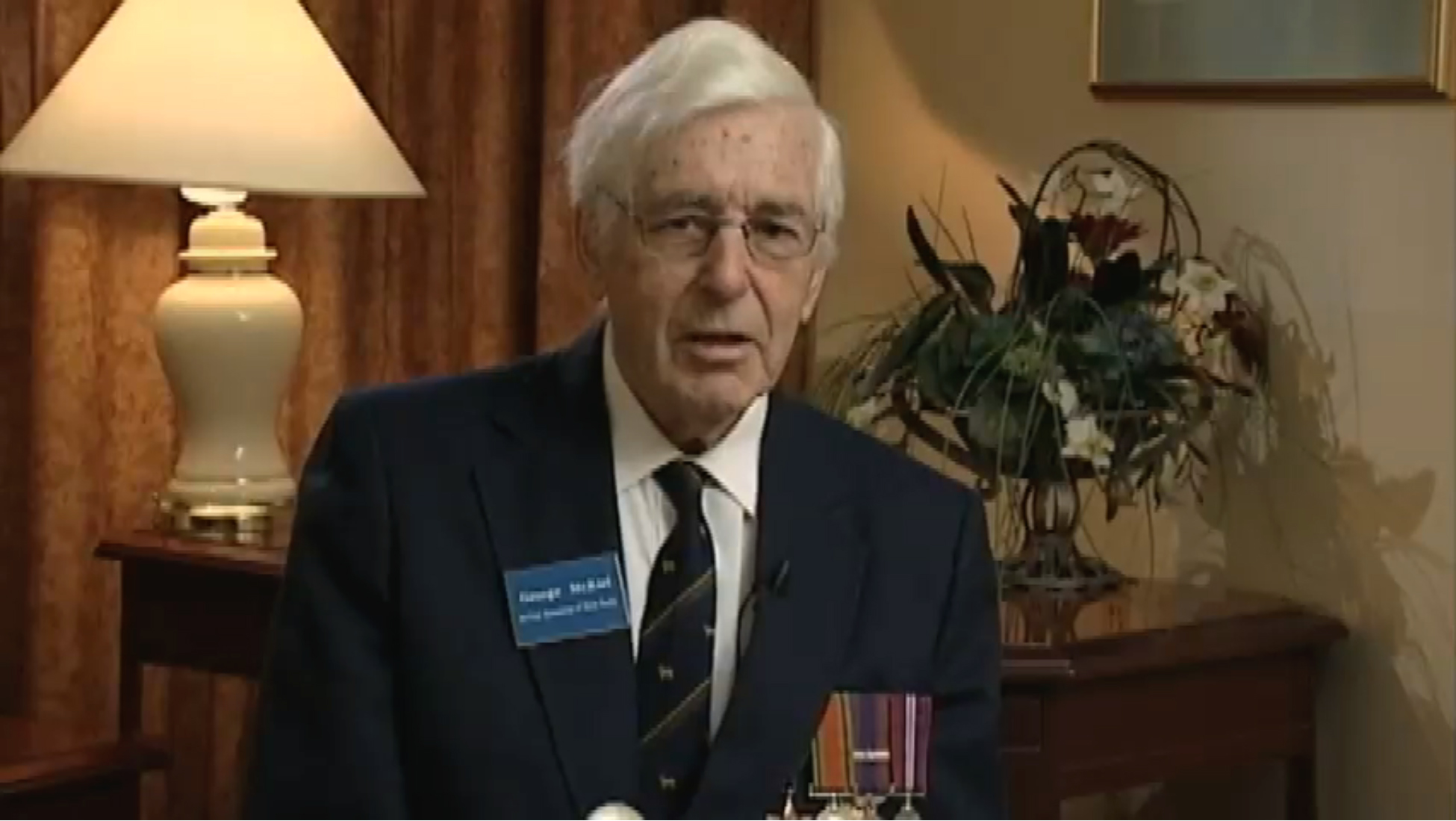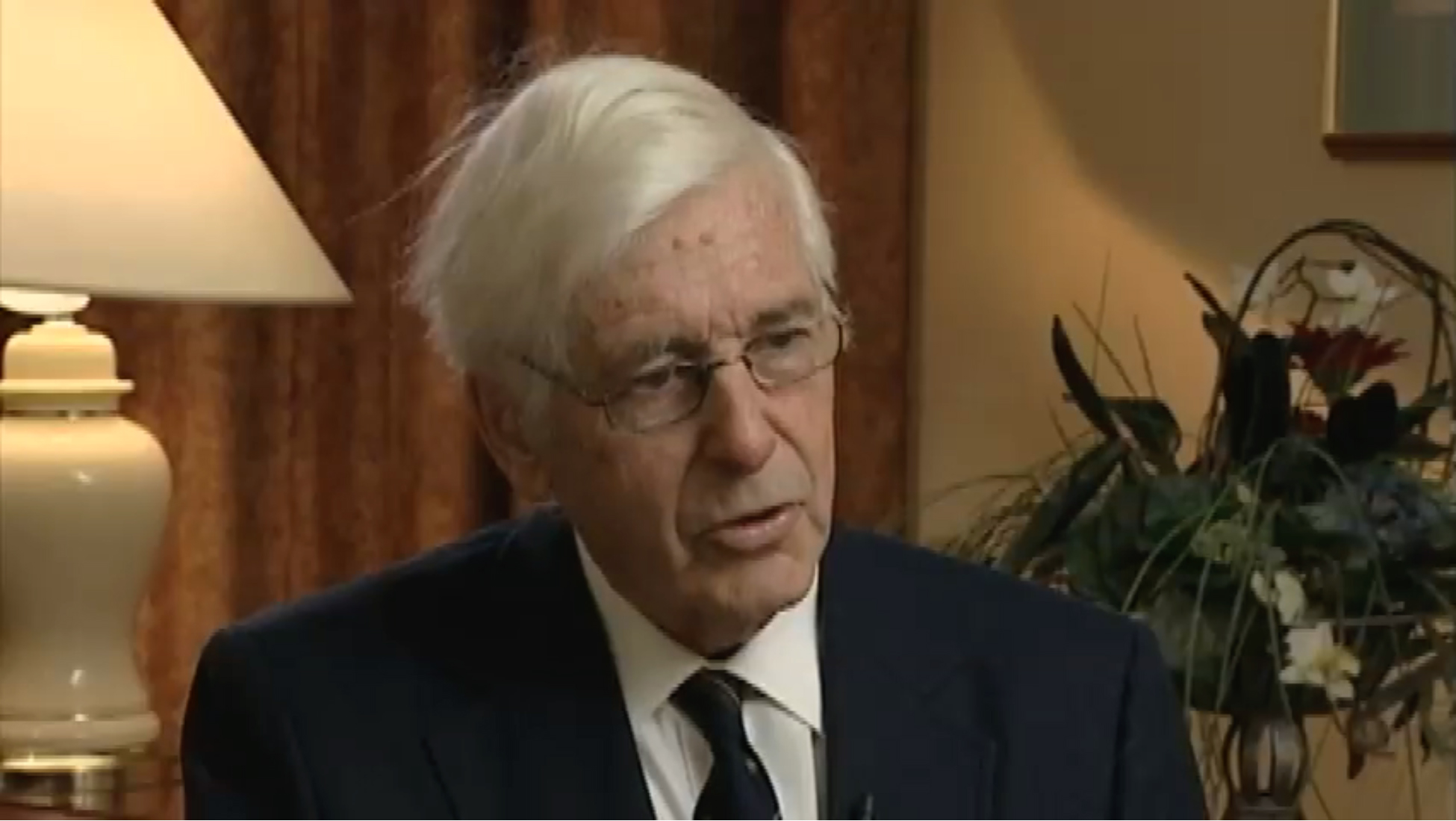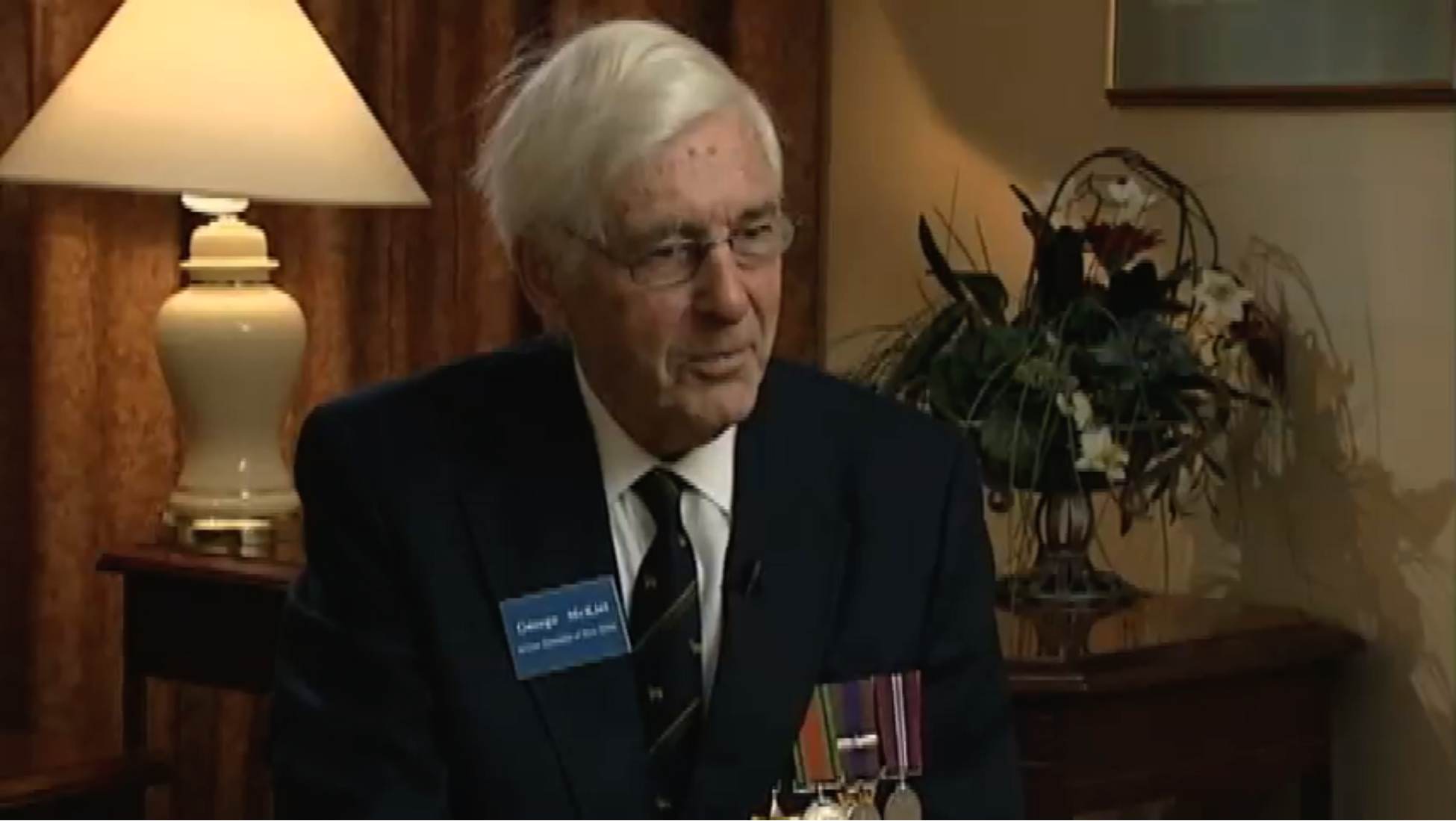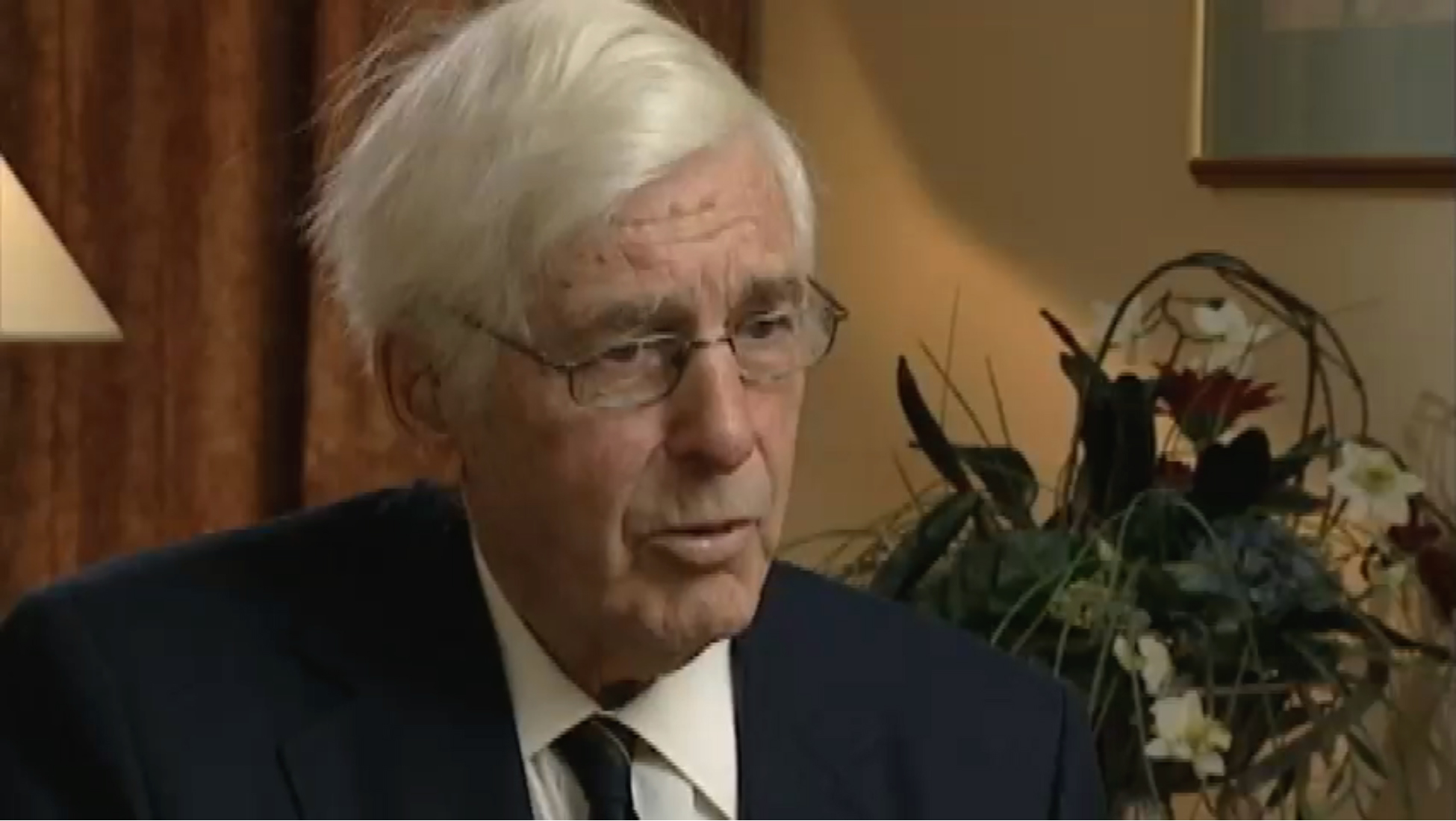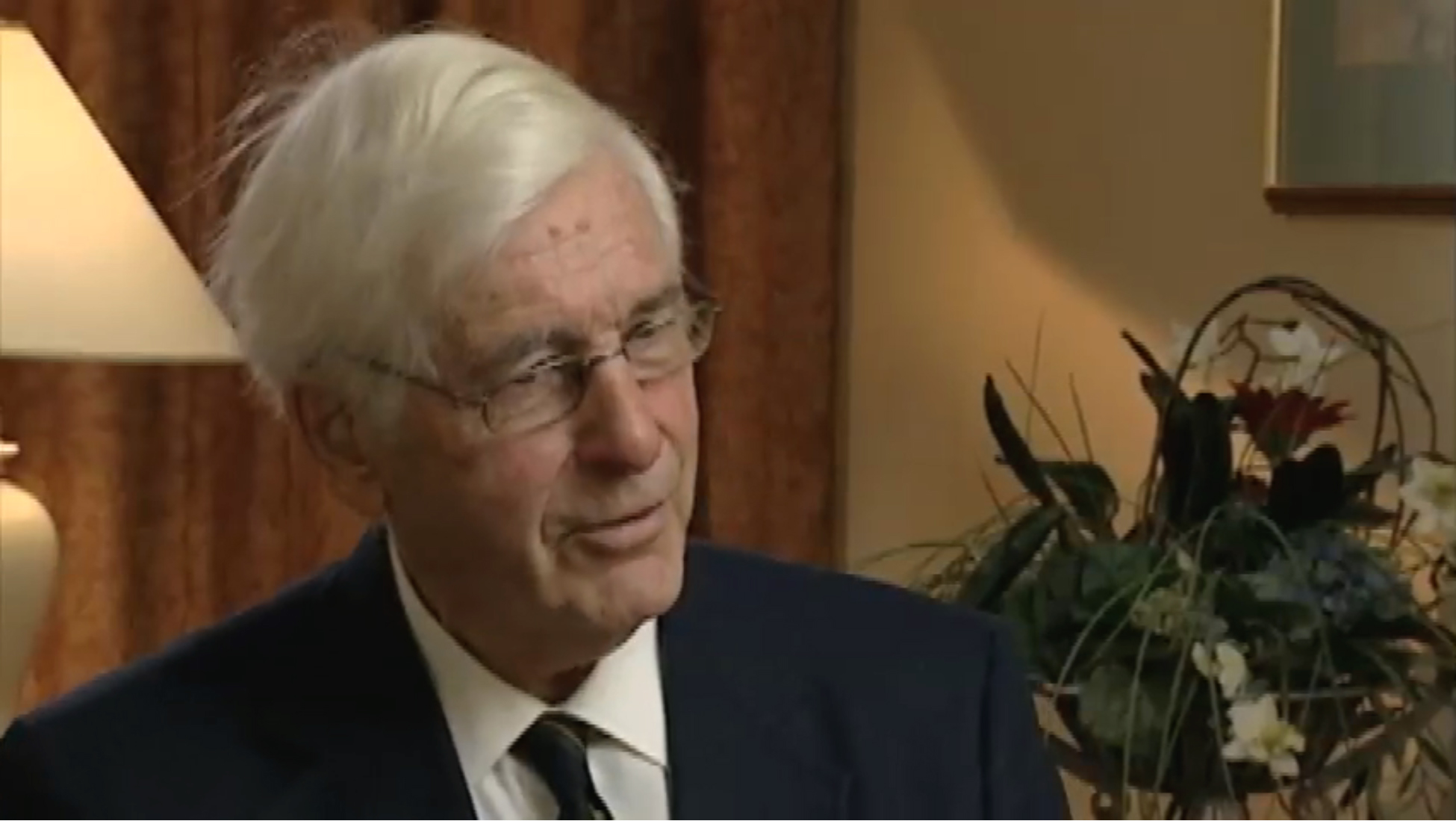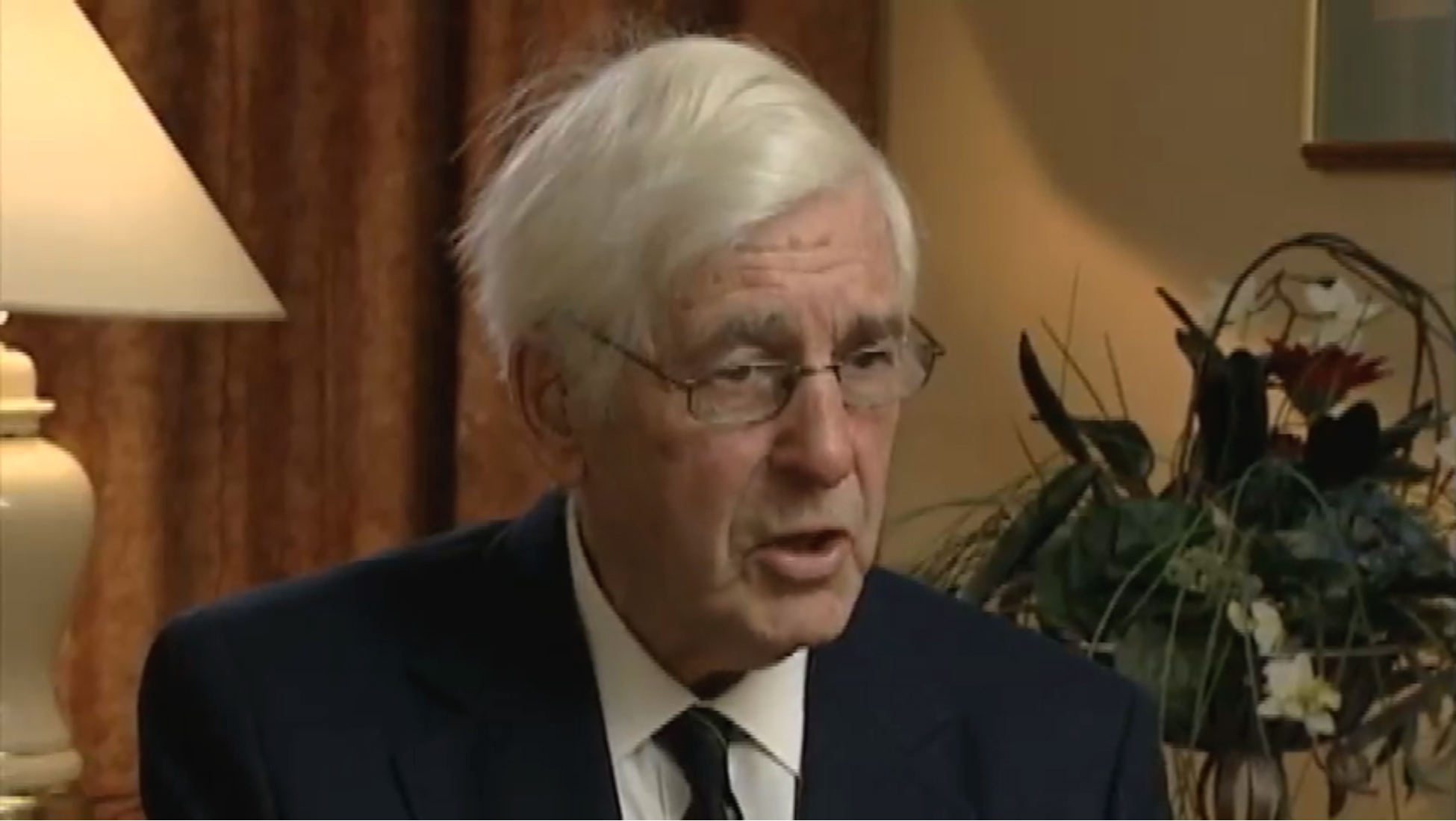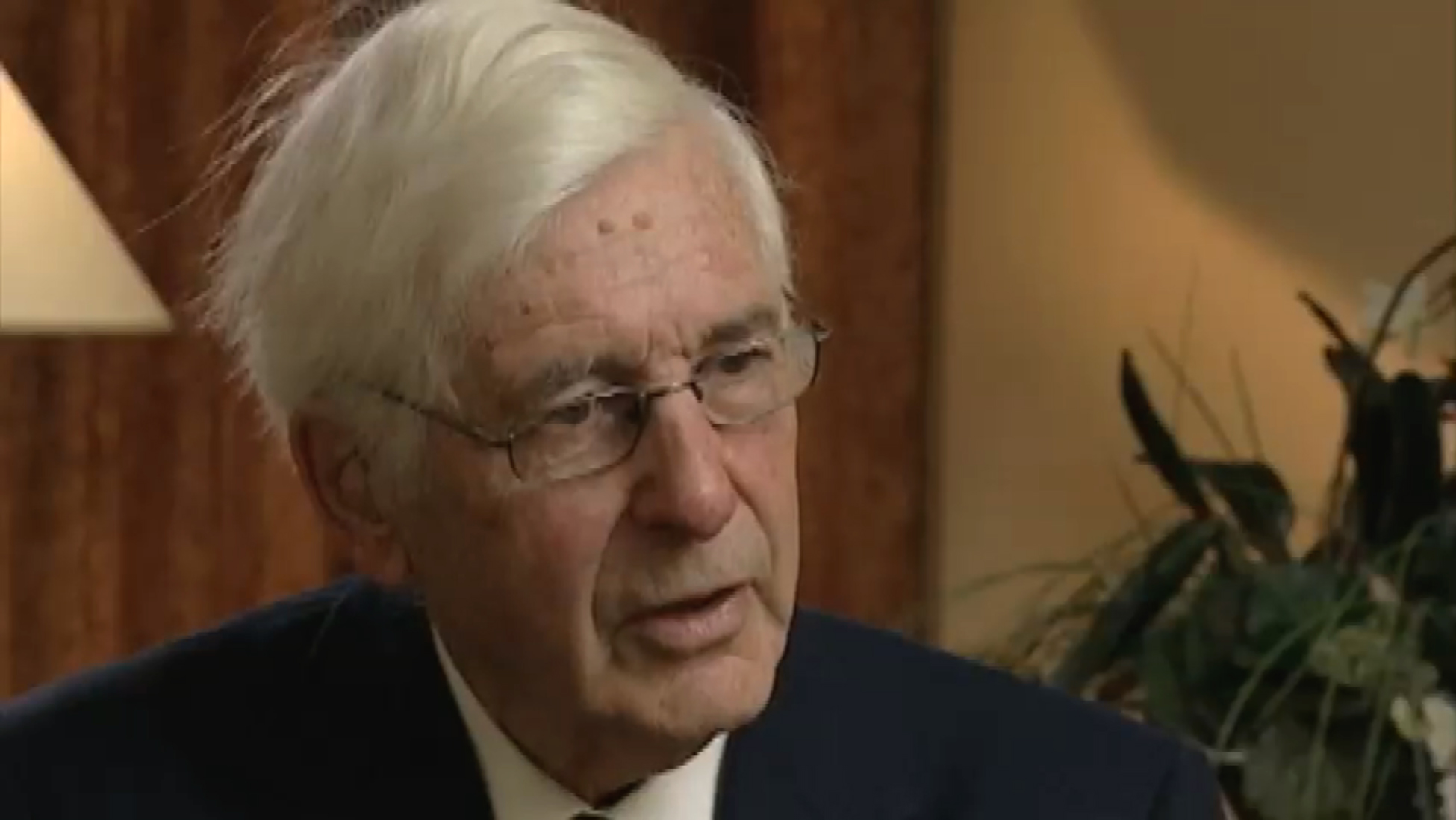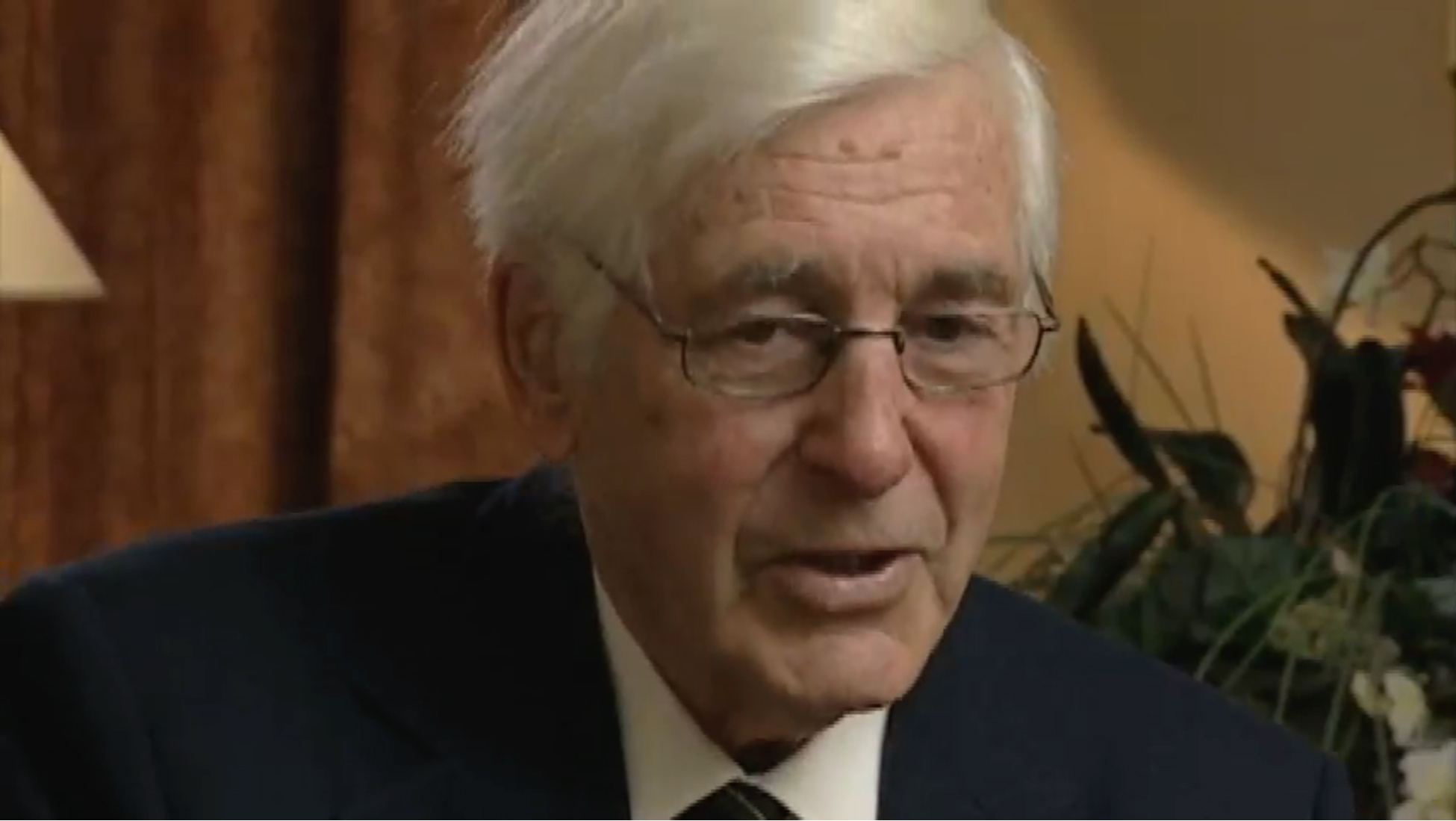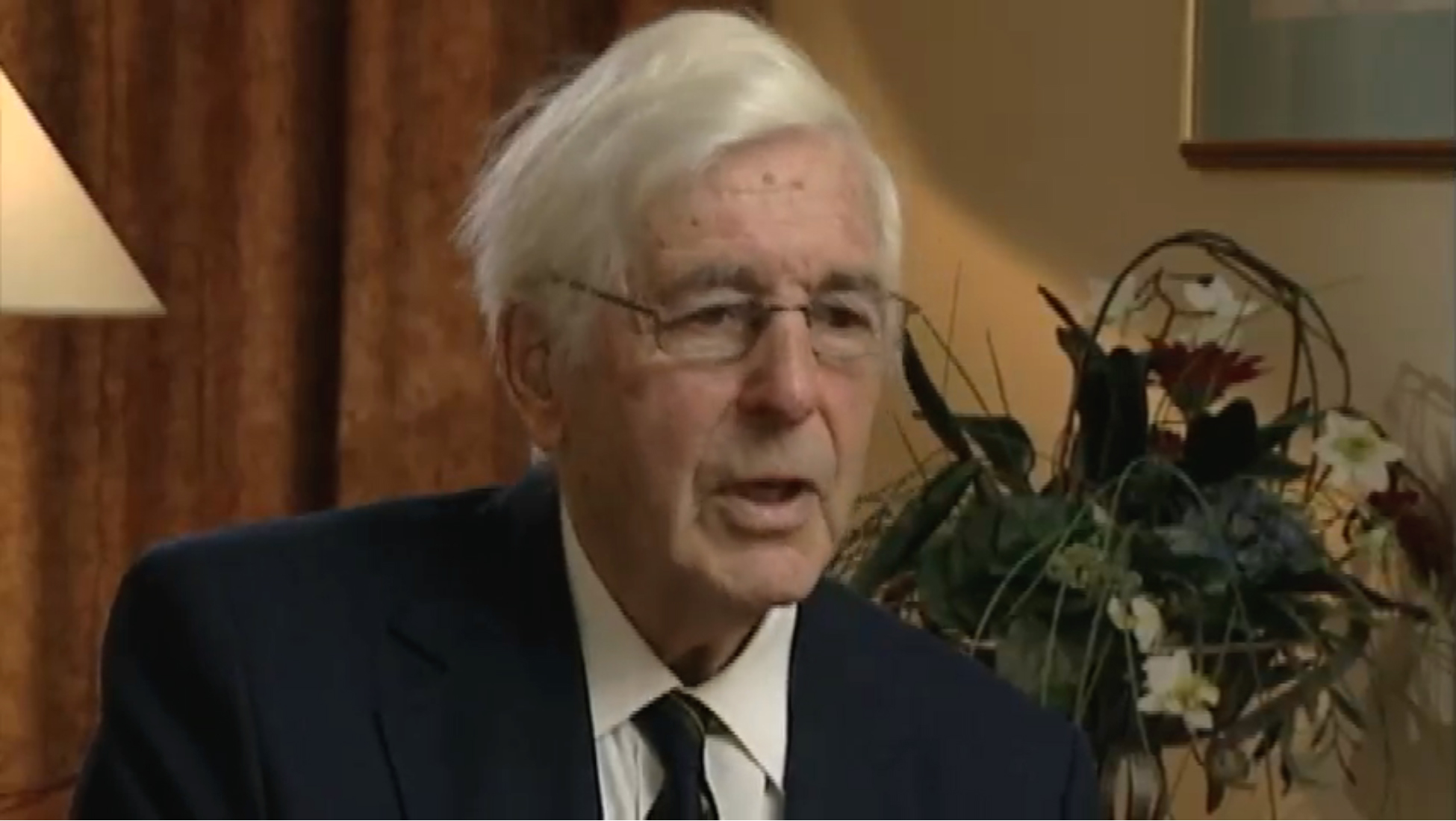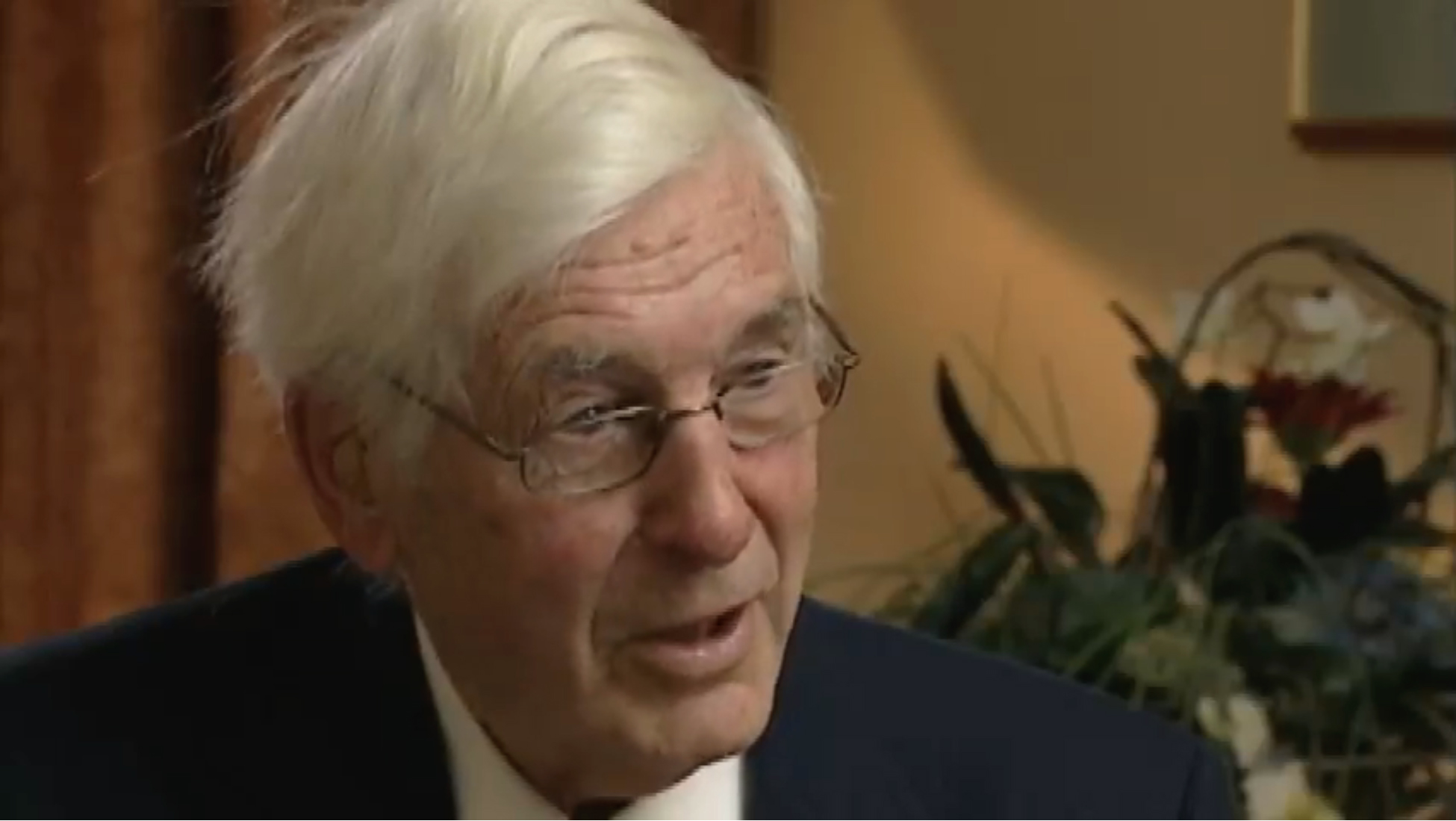As far as we were concerned, we had no direct contact with
them at all except that we knew that the perimeter of the camp
was always guarded 24 hours a day by sentries armed with
rifles, and that these goon boxes were distributed around the
camp itself. So, in order to keep the camp going, they had to
do all... not only the design of the tunnel and the digging of
the tunnel, but all the peripheral things such as creating maps,
because the overall plan was to get 220 officers out through the
tunnel, a mass escape, and we knew that this would have a huge
impact on the morale of both ourselves, a real boost, but also
the fact that the Germans would realize that it was no longer
escape proof, that they were in a lot of jeopardy with these
desperate people that they were trying to keep under guard.
There was also, also the question of clothing. There was some
skilled people in, in the camp who could sew very well, so they
converted not only our uniforms into... dyed different colours,
but also converted into workman's clothes, or they even were able
to create some which were uniforms, German uniforms, and
several of the prisoners had plans to go that way.
Now, all of this was under the jurisdiction of a South African,
called Roger Bushell, and Squadron Leader Bushell was a most
amazing fellow. He was a lawyer, a very successful lawyer,
before the war. He had studied in Germany, so he was
fluent and that was fairly easy for him because he spoke
Boer [Afrikaans] in South Africa, and it wasn't a big step to
speak the German. And he had already had four or five
escapes, all unsuccessful, so this was going to be his big thing.
Roger had got together a team which was dubbed the X committee,
and they had overall jurisdiction as far as escapes were
concerned. They would send out instructions that, "Okay, lay
off the Germans. Stop beating them. We've got a sensitive
time coming up, and we need to keep them on, on side."
And everybody in the camp would, would listen and obey it.
If somebody had an idea for an escape, they went to X committee
first, they didn't do anything until they went and passed it,
put in a proposal, and the X committee would say,
"No, there's no chance of that happening. It's, it's not... it's
already doomed. We'll, we'll not give you any support for that."
But if they thought there was a minimum of success with the
proposal, then they would have all sorts of resources in terms
of money, clothing, ration food, and so on. So this X committee
was also responsible for the security of this. And to come back
to Wing Commander Blake, the New Zealand senior officer,
when I was there for the first few days, he made the mistake
of taking me to show me the tunnel, and I hadn't been cleared.
I was supposed to have been able to get somebody in the camp
who would either know me through operations or through training.
Didn't happen. So, he had jumped the gun. He was in hot water.
I was in hot water. So, it was a bit of a dilemma for a while,
but then it sorted itself out.



